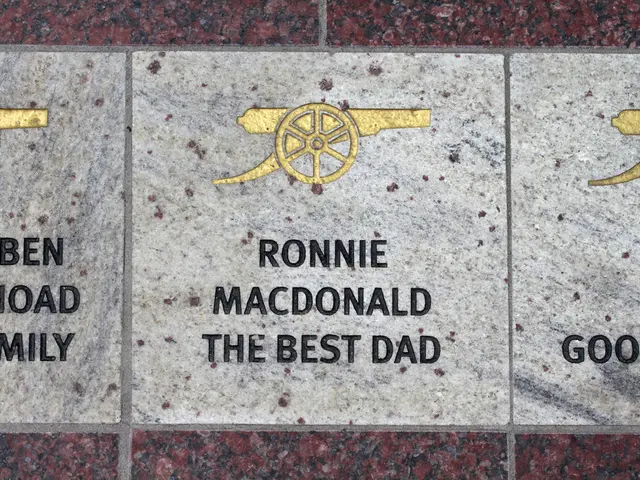Significant Stages in a Child's Early Growth: What You Shouldn't Miss
Parents bear witness to numerous cherished moments in their children's early years, from first smiles to first words—milestones that offer more than just heartwarming memories; they are also crucial indicators of a child's developmental progress. By understanding these key milestones, parents can better support their child's growth journey and recognize when additional guidance might be required.
At our website, we partner with parents to nurture each child's unique developmental path. This comprehensive guide delves into the essential milestones from infancy through pre-kindergarten, offering insights into what to expect and how age-specific programs can support your child's development at every stage.
A Journey Beyond Checkpoints:Child development is not a race or competition; rather, it is a fascinating journey marked by general patterns and individual variations. Development occurs across four main domains:
- Physical development: growth, motor skills, and physical capabilities
- Cognitive development: thinking, learning, problem-solving, and understanding
- Social development: interactions with others and building relationships
- Emotional development: understanding and expressing feelings
Though milestones are helpful guides, it is essential to remember that each child develops at their own pace. Some may walk early but talk later, while others might show advanced language skills before mastering certain physical abilities. This natural variation is both normal and beautiful.
Let's delve into what typically happens at each stage and how you can support your child's development:
Infants (0-12 months): Building FoundationsThe first year of life brings remarkable development, transforming newborn infants with reflexive movements into interactive little people who can move independently and communicate needs.
Physical Milestones
- 0-3 months: lifting the head during tummy time, tracking moving objects with eyes
- 4-6 months: rolling over, sitting with support, reaching for objects
- 7-9 months: sitting independently, beginning to crawl or scoot
- 10-12 months: pulling to stand, cruising furniture, possibly taking first steps
Cognitive Milestones
- 0-3 months: recognizing familiar faces, turning toward sounds
- 4-6 months: exploring objects with mouth, showing curiosity about surroundings
- 7-9 months: understanding object permanence (things exist even when hidden)
- 10-12 months: imitating actions, understanding simple words, beginning cause-and-effect exploration
Social & Emotional Milestones
- 0-3 months: social smiling, enjoying face-to-face interaction
- 4-6 months: laughing, recognizing and preferring familiar people
- 7-9 months: developing attachment to caregivers, showing stranger awareness
- 10-12 months: playing simple games like peek-a-boo, showing emotions like joy and fear
How BBMA Supports Infant Development
At BBMA, our infant program provides individualized care in a nurturing environment that stimulates all developmental domains through:
- Personalized tummy time sessions that build neck and core strength
- One-on-one interactions that foster secure attachments with caregivers
- Sensory experiences with different textures, sounds, and visual stimulation
- Language-rich environment with talking, singing, and reading throughout the day
- Consistent caregivers who learn your baby's unique cues and preferences
Supporting Your Infant at Home
- Create a safe space for floor play and exploration
- Talk, sing, and read to your baby daily
- Respond consistently to cries and communication attempts
- Provide varied sensory experiences through different textures, sounds, and sights
- Establish consistent routines for sleeping, feeding, and play
Toddlers (1-2 Years): Exploration and IndependenceToddlerhood brings an explosion of movement, language, and independence. Your little one is now on the move and eager to explore everything!
Physical Milestones
- Walking independently, eventually running
- Climbing on furniture and playground equipment
- Beginning to kick and throw balls
- Stacking blocks and developing hand coordination
- Beginning to use utensils and cups
Cognitive Milestones
- Expanding vocabulary from a few words to 50+ words
- Following simple instructions
- Pointing to named body parts and familiar objects
- Beginning symbolic play (pretending)
- Sorting objects by shape or color
Social & Emotional Milestones
- Showing increasing independence
- Experiencing separation anxiety
- Demonstrating a wide range of emotions
- Beginning parallel play alongside other children
- Imitating others' behaviors and activities
How BBMA Supports Toddler Development
Our toddler program harnesses this natural curiosity and energy by providing:
- Safe, engaging environments designed for exploration and discovery
- Movement activities that develop gross motor coordination
- Language-rich interactions with teachers who expand on children's communication
- Simple social games that build turn-taking and sharing foundations
- Sensory experiences that engage all learning styles
Supporting Your Toddler at Home
- Create safe spaces where exploration is encouraged
- Read picture books daily and talk about what you see
- Provide simple art activities with chunky crayons or finger paint
- Play music and dance together
- Establish consistent limits while allowing appropriate choices
By paying close attention to developmental milestones and providing opportunities for exploration, parents can support their child's growth and foster a strong foundation for future success. At BBMA, we strive to help families navigate the ever-evolving developmental landscape, partnering with parents to nurture each child's unique potential.
This blog post is intended to serve as a general guide to typical developmental milestones. Every child is unique and may develop at different rates across various domains. If you have specific concerns about your child's development, please consult with your pediatrician or a developmental specialist.
- Educating parents about their child's physical, cognitive, social, and emotional development is crucial for supporting growth, as our guide demonstrates from infancy through preschool.
- Frequent communication between parents and preschools can help parents provide the best possible environment for their child's health-and-wellness and overall development.
- Science plays an essential role in understanding the patterns and variations of child development, contributing to better parenting techniques and education-and-self-development resources.
- Effective parenting involves understanding that each child follows their own path of development, appreciating the individual variations and striving to support their child's milestones rather than comparing them to others.







